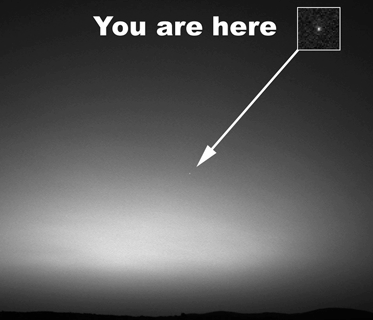1. Where Is Everybody?
There is something beguiling about paradox. The visual paradoxes of Maurits Eschers prints never fail to entice the eye. Poems such as Robert Graves Warning to Children , which play with the paradox of infinite regress, make the head spin. Paradox lies at the heart of Joseph Hellers Catch-22 , one of the 20

centurys greatest novels. My favorite paradox, though, is that of Fermi.
I first came across the Fermi paradox in the summer of 1984. I had just graduated from Bristol University, and I should have spent the summer months studying Aitchison and Heys Gauge Theories in Particle Physics required reading before I started postgraduate studies at Manchester University. Instead, I spent my time enjoying the sunshine on the Bristol Downs, studying my favorite reading matter: Isaac Asimovs Science Fiction Magazine . As is the case with many people, SF sparked my interest in science. It was through reading the works of Isaac Asimov,

Arthur Clarke and Robert Heinlein and watching films such as Forbidden Planet that I became enamored with science. Two thought-provoking science-fact articles appeared in successive issues

of Asimovs that year. The first, by Stephen Gillett, was simply entitled The Fermi Paradox . The second, a forceful rebuttal by Robert Freitas, was entitled Fermis Paradox: A Real Howler .
Gillett argued in the following way. Suppose, as the optimists believed, that the Galaxy is home to many extraterrestrial civilizations. (To save typing, I shall often refer to an extraterrestrial civilization as an ETC .) Then, since the Galaxy is extremely old, the chances are good that ETC s will be millions or even billions of years in advance of us. The Russian astrophysicist Nikolai Kardashev proposed a useful way of thinking about such civilizations. He argued that we could classify ETC s in terms of the technology they possessed, and he devised a 3-point scale for measuring the potency of that technology. A Kardashev type 1 civilization, or KI civilization, would be comparable to our own: it could employ the energy resources of a planet. A KII civilization would be far beyond our own: it could employ the energy resources of a star. A KIII civilization could employ the energy resources of an entire galaxy . According to Gillett, then, most ETC s in the Galaxy would be of a KII or KIII type. Now, everything we know about terrestrial life tells us that life has a natural tendency to expand into all available space. Why should extraterrestrial life be any different? Surely ETC s would want to expand from their home world and out into the Galaxy. Butand this is the key pointa KII or KIII civilization should be able to colonize the Galaxy in a few million years. The Galaxy should be swarming with technologically advanced civilizations. They should already be here! And yet we see no evidence that ETC s exist. Gillett called this the Fermi paradox. (I learned why Fermis name is attached to the paradox a few months later, when Eric Jones published a Los Alamos preprint describing the origins of the paradox; but more of this later.) For Gillett, the paradox pointed to a chilling conclusion: humankind is alone in the universe.
Freitas thought this was all hogwash. He compared Gilletts logic to the following argument. Lemmings breed quicklyabout 3 litters per year, with each litter containing up to 8 offspring. In just a few years the total mass of lemmings will be equal to the mass of the entire terrestrial biosphere. The Earth must be swarming with lemmings. And yet most of us see no evidence that lemmings exist. Have you ever seen a lemming? The Fermi paradox line of reasoning would lead us to conclude that lemmings dont existyet, as Freitas pointed out, this would be absurd. More interestingly, he pointed out that the lack of evidence for ETC s isnt particularly strong: if small artificial probes were parked in the Asteroid Belt, say, or larger probes in the Oort Cloud, then wed have essentially no chance of detecting them. Besides, he argued that the logic behind the so-called paradox is faulty. The first two steps in the argument are: (i) if aliens exist, then they should be here; (ii) if they are here, then we should observe them. The difficulty is those two shoulds. A should is not a must and therefore its logically incorrect to reverse the arrow of implication. (In other words, the fact we havent observed them doesnt allow us to conclude they arent here, so we cant conclude they dont exist.)
Until we obtain some new information that can help us resolve a paradox, people are free to follow differing lines of reasoning. This is, after all, what makes paradox so interesting. In the case of the Fermi paradox, the stakes are so high (the existence or otherwise of alien intelligence) and the experimental input to the argument is so sparse (even now, we cant be sure ETC s arent here) that arguments often become heated. In the GillettFreitas debate, I initially sided with Freitas. The main reason was sheer weight of numbers: there are perhaps as many as 400billion stars in the Galaxy, and as many galaxies in the universe as there are stars in the Galaxy. Ever since the time of Copernicus, science has taught us theres nothing special about Earth. It followed, then, that Earth couldnt be the sole home to intelligent life. And yet
Gilletts argument stuck in my mind. Id been reading about cosmic wonders since I was a child. The Galaxy-spanning civilization of the Foundation trilogy, the astroengineering wonders of Ringworld , the enigma of the vessel in Rendezvous with Rama all these were part of my mental furniture. And yet where were these marvels? The imaginations of SF writers had shown me hundreds of possible universes, but my astronomy lecturers had made it clear that so far, whenever we look out into the real universe, we can explain everything we see in terms of the cold equations of physics. Put simply, the universe looks dead. The Fermi question: where is everybody? The more I thought about it, the more the paradox seemed to be significant.
It seemed to me the paradox was a competition between two large numbers: the plethora of potential sites for life versus the vast age of the universe.
The first number is simply the number of planets with suitable environments for the development of life. If we adopt the Principle of Mediocrity, and assume theres nothing special about Earth, it follows there are many millions of suitable environments for life in the Galaxy (and many billions of environments in the universe). Given so many potential seeding grounds, life should be common. This argument goes back at least as far as the 4

century BC when Metrodorus of Chios wrote that a single ear of wheat in a large field is as strange as a single world in infinite space.
Fig. 1.1
The first image of Earth taken from the surface of another planet: this photograph was taken in March 2004 by the Mars Exploration Rover Spirit. Earth is just about visible on a computer screen; the limits of printing technology mean you might not be able to see it here. Earlier, in 1990, Voyager 1 sent back a photograph of Earth taken from much further awaya distance of about 6 billion kilometers. In Carl Sagans words, Earth appeared as a pale blue dot. When contemplating the insignificance of the piece of rock we inhabit, and the billions of similar rocks that must be out there, its difficult to believe we might be alone in the universe. (Credit: NASA)

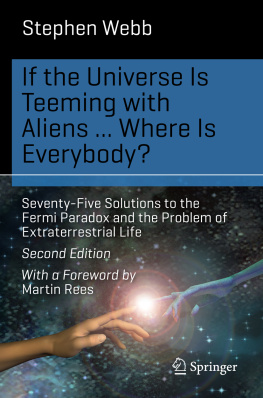







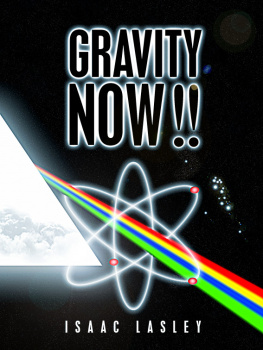

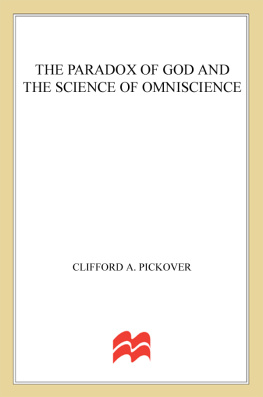
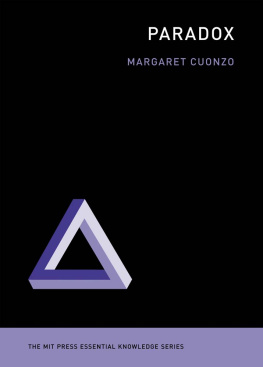
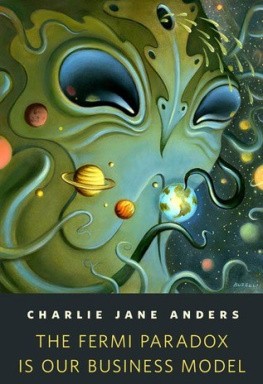

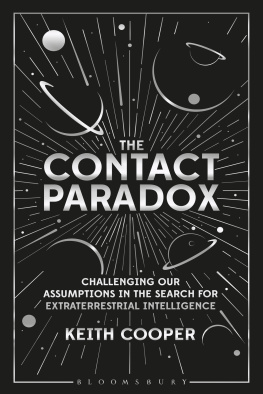
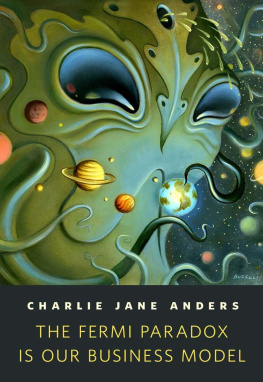
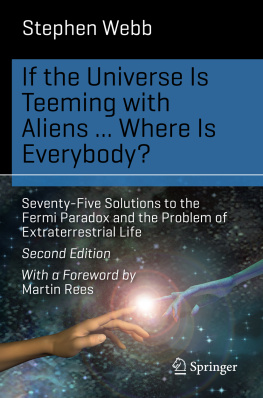
 centurys greatest novels. My favorite paradox, though, is that of Fermi.
centurys greatest novels. My favorite paradox, though, is that of Fermi. Arthur Clarke and Robert Heinlein and watching films such as Forbidden Planet that I became enamored with science. Two thought-provoking science-fact articles appeared in successive issues
Arthur Clarke and Robert Heinlein and watching films such as Forbidden Planet that I became enamored with science. Two thought-provoking science-fact articles appeared in successive issues  of Asimovs that year. The first, by Stephen Gillett, was simply entitled The Fermi Paradox . The second, a forceful rebuttal by Robert Freitas, was entitled Fermis Paradox: A Real Howler .
of Asimovs that year. The first, by Stephen Gillett, was simply entitled The Fermi Paradox . The second, a forceful rebuttal by Robert Freitas, was entitled Fermis Paradox: A Real Howler . century BC when Metrodorus of Chios wrote that a single ear of wheat in a large field is as strange as a single world in infinite space.
century BC when Metrodorus of Chios wrote that a single ear of wheat in a large field is as strange as a single world in infinite space. 